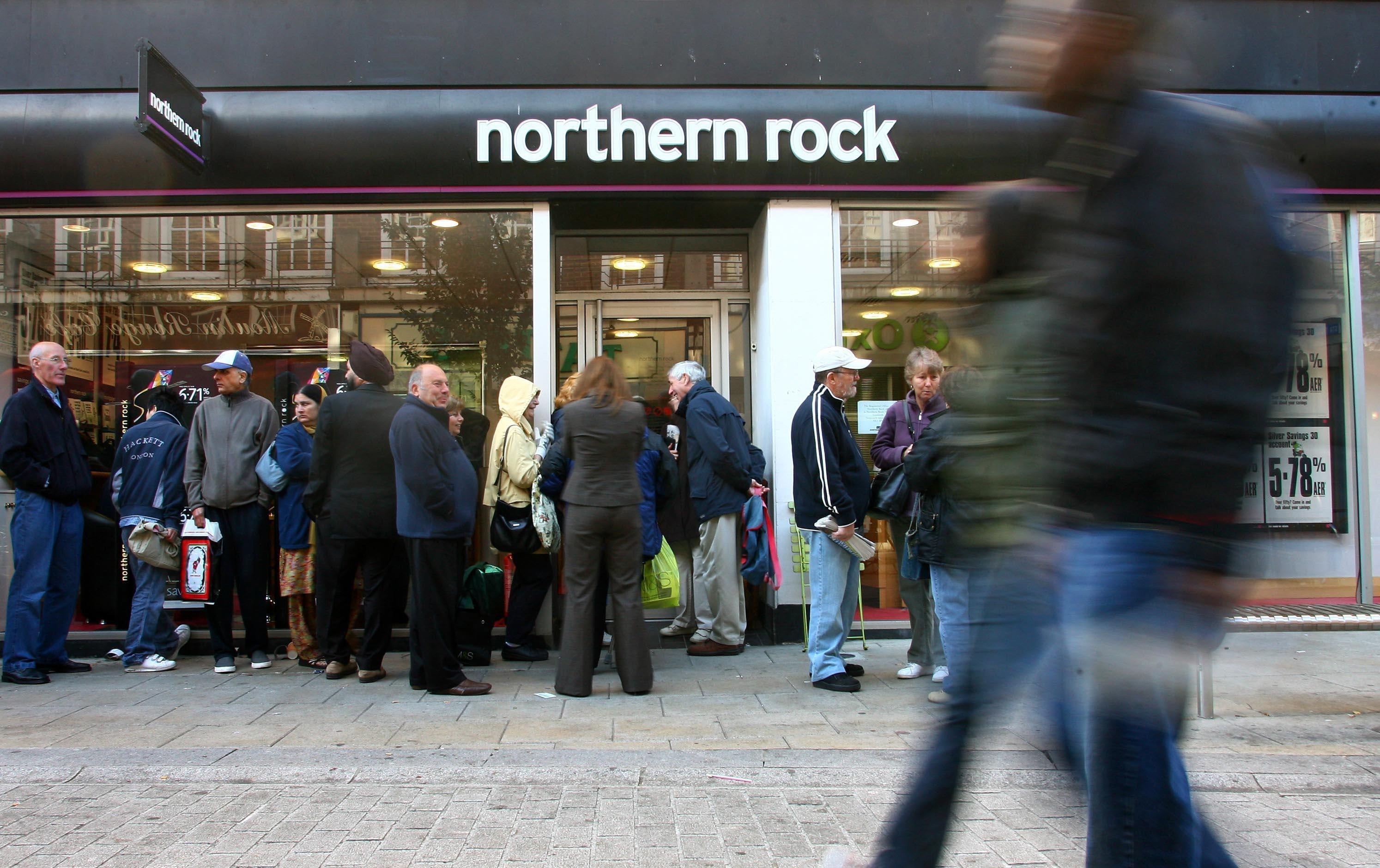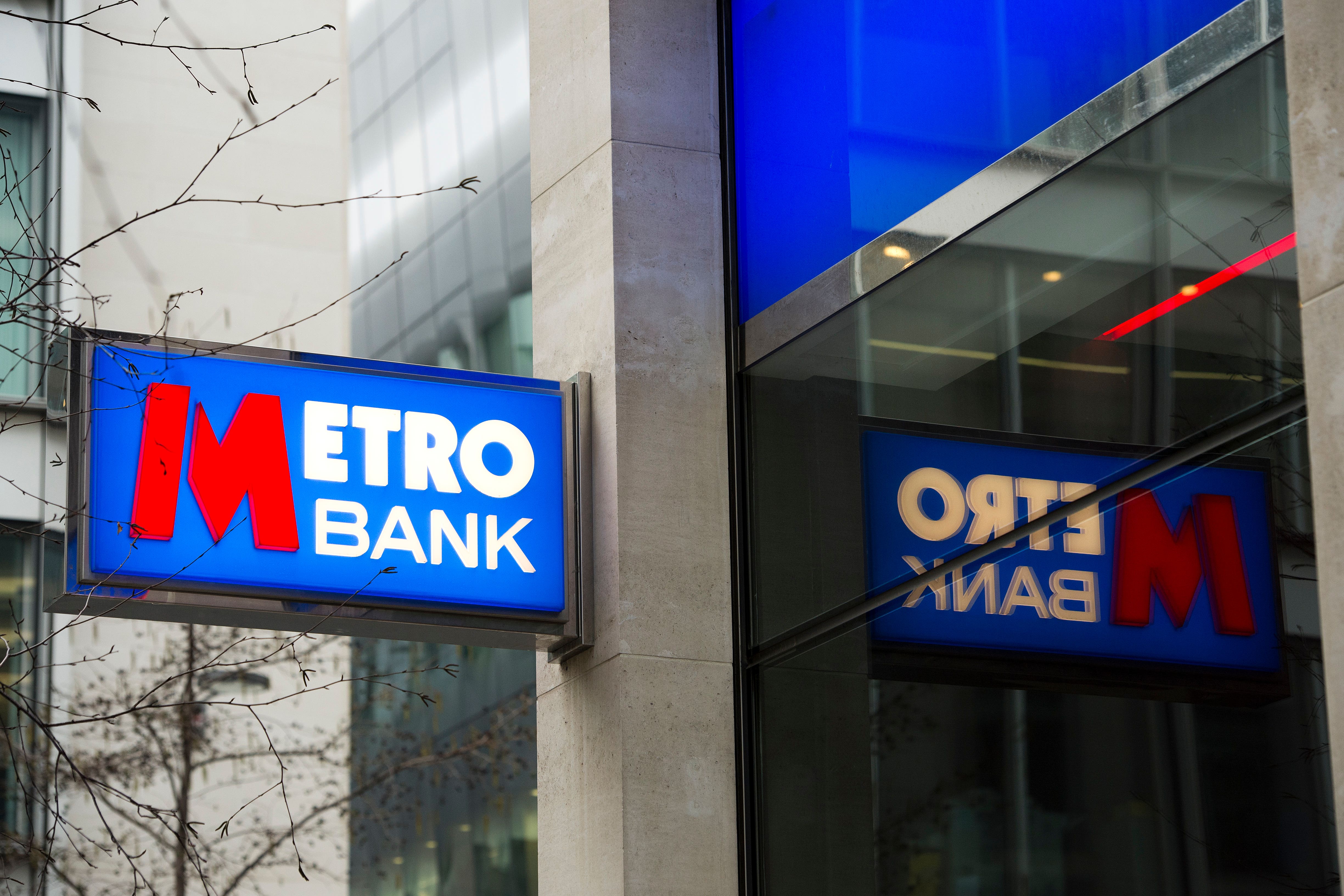Don’t be surprised if there is another run on a UK bank
Sixteen years after the collapse of Northern Rock, the original ‘challenger’ bank, Metro is reportedly looking to raise up to £600m to bolster its finances as its share price plummets. Don’t be shocked if it – or another – bank fails soon, writes Chris Blackhurst


In September 2007, the BBC News evening bulletins led with the revelation that Northern Rock was seeking emergency funding from the Bank of England.
That night, queues of customers started forming outside the beleaguered bank’s branches. The following morning, they were hundreds of yards long.
At the Bank of England, the governor, Mervyn King, saw footage of the lines on his TV screens.
He’s supposed to have asked what the people were doing. “They’re waiting to get their money out, governor,” was the reply.
To which King said, did they not understand that the official compensation scheme meant that if Northern Rock went down they were guaranteed to receive up to £30,000 of their deposits?
That may have been so, but human nature overrides hard logic – people wanted to access their cash. Also, they desired it now. They might have required the cash to buy something, pay for a holiday, whatever. They were not prepared to wait and fill in forms. The quickest, safest option was to withdraw all their money immediately.
Attempts at reassurance by King and the government had little effect. In hours, £2bn was taken out of Northern Rock. The crowds outside grew bigger and scuffles erupted as branches shut their doors at the end of the day. It was only when the chancellor, Alistair Darling, announced that all savings and deposits would be covered that calm was restored.
Britain had just witnessed the first run on a bank in over a century. Today, after the banking crisis kickstarted in the UK by the problems at Northern Rock, that £30,000 figure has risen to £85,000. That’s the maximum the Financial Compensation Scheme will automatically pay out to individual customers in the event of a bank failing. Business and charity customers will be assessed on a case-by-case basis.

The scheme has come into sharp relief again because of mounting concerns regarding Metro Bank. The original “challenger” bank, Metro is reportedly looking to raise up to £600m to bolster its finances. Meanwhile, its share price has plummeted.
Metro was the first new bank in the UK in more than 100 years when it opened in 2010. It positioned itself as the upstart disruptor to the long-established giants, opening for longer hours and at weekends, charging less, making quicker decisions on new accounts and loans, and providing customer-oriented touches such as comfy sofas and even water bowls for dogs. Metro branches were brightly coloured and less stuffy.
However, an accounting scandal in 2019 saw regulators fine Metro. The CEO went and the flamboyant US founder Vernon Hill also departed.
Ever since, it’s been fighting to regain lost credibility in the City. As ever, where a newcomer promising to shake things up is concerned, the incumbents have been quick to pounce, privately throwing darts, snootily claiming Metro pays more attention to customer comfort than the ins and outs of actual banking.
The signs, though, are ominous. Fitch, the credit rating agency, has marked Metro down to “negative”. One analyst, Gary Greenwood at Shore Capital, wrote: “Supporting a further capital raise for this struggling bank would be akin to throwing good money after bad, in our view, as it has already had enough time and opportunity to sort itself out and has been unable to do so. Investors and bondholders may therefore be better served investing their money elsewhere.”
For its part, Metro insists it’s OK, it’s been profitable in the last three quarters and it meets all regulatory requirements. Significantly, though, the shareholders are voting with their feet. Unlike depositors, their investments are not covered by any compensation scheme – if the shares collapse, they lose their money.
Metro’s woes have focused attention on the new, online banks like Starling, Monzo, Atom and Kroo. The rules are simple: if they have a UK banking licence they’re authorised by the Prudential Regulation Authority and customers are protected by the compensation scheme.
Some fintech firms, such as Revolut and Monese, look like banks but are not registered as banks. Instead, they hold e-money licences. They’re not covered by the compensation scheme but they are regulated by the Financial Conduct Authority. They must ring-fence customer deposits by keeping them in segregated accounts. If they go under, the customer can reclaim their money from this account. There’s no sign of any of them being in trouble.
The problems at Metro are of its own making. No one should be surprised if the bank fails to raise the capital it is seeking. Don’t be surprised, even with the enhanced guarantee in place, lines of customers begin forming again. They put their money in and now they want it back. They’re human. It’s very simple, really.



Join our commenting forum
Join thought-provoking conversations, follow other Independent readers and see their replies
Comments